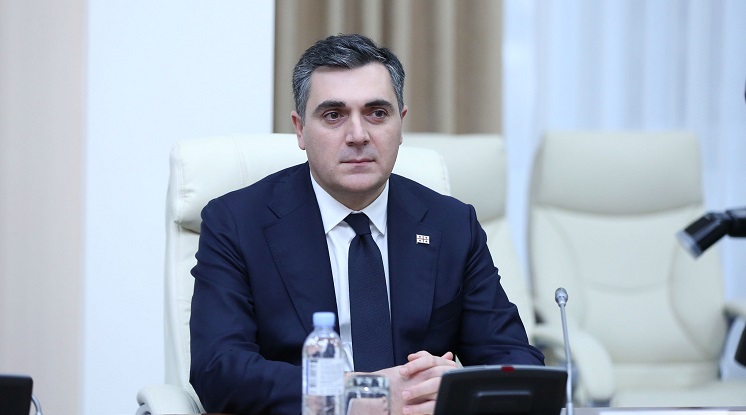FM: Gov’t remains committed to peaceful resolution of Russia-Georgia conflict, int’l community’s decisive steps necessary

Georgian foreign minister Ilia Darchiashvili on Thursday addressed the ministerial council of the Organisation for Security and Co-operation in Europe.Photo: foreign ministry press office
The Georgian government remains committed to a peaceful resolution of the Russia-Georgia conflict, foreign minister Ilia Darchiashvili said on Thursday in his address at the ministerial council of the Organisation for Security and Co-operation in Europe.
Darchiashvili highlighted the necessity of “decisive steps” by the international community in the process, and the significance of their “unity” in urging Russia to fulfil its international obligations and respecting the fundamental principles of international law, including the European Union-mediated 2008 ceasefire agreement. He also stressed “threats and use of force” by Russia had to be stopped, adding it would not be possible to “succeed with such language”.
Darchiashvili said the peaceful resolution included de-occupation of Georgian territories, and prioritised reconciliation and restoration of trust between the communities divided by the conflict, noting the Geneva International Discussions were the only format to ensure the full implementation of the ceasefire agreement and the return of refugees and internally displaced persons.
Would like to express my immense gratitude to the Group of Friends of Georgia for their unwavering and vocal support to our country, as well as for keeping the case of ???????? high on OSCE's political agenda. #OSCEMC22 pic.twitter.com/VES1FbPwtu
— Ilia Darchiashvili (@iliadarch) December 1, 2022
Georgia experienced Russia's aggressive policy, which combined the tools of conventional and hybrid warfare, and this has been happening since the early 90s. This was followed by a full-scale military aggression in August 2008. We are experiencing severe consequences of this aggression every day”, the minister told the council.
He also noted the regions of Abkhazia and Tskhinvali (South Ossetia) still remained occupied by Russia and had been “turned into Russian military bases”, while also adding that more than 300,000 Georgians had been expelled from their homes in the regions and were still being denied the right to return.
I would like to cite the January 2021 decision of the European Court of Human Rights and the June 2022 verdict of the International Criminal Court, which legally established Russia's occupation, its effective control of Abkhazia and Tskhinvali regions, and Russia's responsibility for human rights violations”, the foreign minister emphasised.
The FM added the OSCE has been offering a “comprehensive and well-tuned” framework for security, which had “good potential” to serve peace and security in Europe, but said the opportunity could “remain unused” if all OSCE members did not “respect the basic principles and obligations they have undertaken to fulfil”.
 Tweet
Tweet  Share
Share